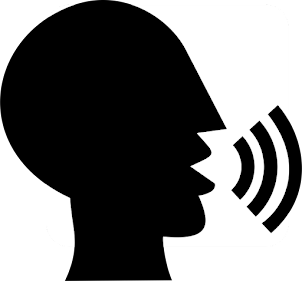Help, Lord, for no one is faithful anymore;
those who are loyal have vanished from the human race.
Everyone lies to their neighbor;
they flatter with their lips
but harbor deception in their hearts.
May the Lord silence all flattering lips
and every boastful tongue—
those who say,
“By our tongues we will prevail;
our own lips will defend us—who is lord over us?”
“Because the poor are plundered and the needy groan,
I will now arise,” says the Lord.
“I will protect them from those who malign them.”
And the words of the Lord are flawless,
like silver purified in a crucible,
like gold refined seven times.
You, Lord, will keep the needy safe
and will protect us forever from the wicked,
who freely strut about
when what is vile is honored by the human race.
Here we find another lament of David. He looks around and says what I have often heard said these days, though the language is perhaps a bit different. "Why is there so much evil?" "Why doesn't anyone follow God anymore?" "Things have never been this bad."
But David turns to the Lord and opens with "Help!" Did you know that is one of the best prayers? That one word communicates so much: surrender and faith. It says, "Hey, Lord, I know you're the only hope in this situation." It looks in the right direction for hope and assistance. Don't ever feel ashamed or afraid to simply say to your loving heavenly Faith and Creator-King, "Help!"
In the pattern of a lament, after issuing his complaint/plea-for-help combo, David expresses confidence in God to shut down the proud and boastful. Then there's the stanza where God speaks. It is almost like, mid-prayer, David turns to God's word for language to express his confidence that God is going to answer his plea for help. God will arise! His word (promises) will be fulfilled!
David closes with a word of praise to God, the one who keeps the needy safe and protects the vulnerable from the wicked, even if it seems like at the moment they are prevailing.
A Psalm of Contrasts
As per the usual in wisdom literature, God's steadfast faithfulness and power to protect his people and triumph over evil are set in contrast to the pride and dishonesty of "the wicked" - those who refuse to acknowledge God. Another comparison is presented between their words and God's. The speech of these unfaithful and unloyal humans is at best unreliable, at worst harmful. God's word, however, is as trustworthy and pure as can be. Human tongues wag in confidence their plans will come to pass and nothing can stop them. But the Lord arises, able to make his word come to pass.
It is worth the time to present a final contrast that may not be as obvious, but I find most personally convicting. The last line of the Psalm reads, "when what is vile is honored by the human race." To read that word in the context of this psalm, vile can be understood as lying, deceitfulness, boasting, pride, and plundering the vulnerable. If I were asked, outside of reading this psalm, what I'd put in the vile category, none of these things would make my list. I'd be thinking of gross, deviant behaviors that make the daily news and leave us thinking, "Thank goodness I'm not like that!" But lying, deceit, pride, boasting, benefiting from the plunder of the poor? Well, I can be like that! In contrast, we find the faithful - loyal to God and fellow humans - who humbly turn to God, trust in his protection and power, and strive to help the poor and needy.
Good News!
Because of the death and resurrection of Jesus, those who put their faith in him have a door opened to freedom from wickedness (dependence on self) and unto faithfulness (humble surrender to God). God takes hard hearts, prone to lies, flattery, and deception, and gives hearts of flesh in return, hearts soft toward him and toward our neighbor. The self-preservation-at-any-cost way of living is replaced by a hopeful, faithful, peaceful existence grounded in the love of our powerful and loving Creator-King who sees the poor and needy and is risen.
I am humbled by a psalm like this. On my own, without the Lord's intervention in my life, I was in the group David talks about in verse one. But he has intervened and given me faith and his Spirit. I am no longer at the mercy of my pride and desires! Nor are you if you have put your trust in Jesus. Yes, temptation will come - we are not yet in the new earth - but sin's power over us is no more. We belong to the Lord and are part of his family!
People will fail us. We will disappoint ourselves. But "the words of the Lord are flawless." Indeed, what he says he will do. Consider the contrasts in this psalm and, as you meditate on the gospel today, rejoice! When you were poor and needy, the Lord came to your aid. Jesus' work is complete and he will return.
When we are tempted to join in David's lament,"Lord, no one is faithful anymore! Evil is winning!" may the Spirit quickly come to our aid, reminding us of God's triumph over evil, his good and true promises, and his love and power at work in his Church (us!) and in the world. Further, may the Lord guide us into his way for us today and in the coming days, showing us when and where we can be part of his "arising" to the aid of the poor and needy.
Shalom!





